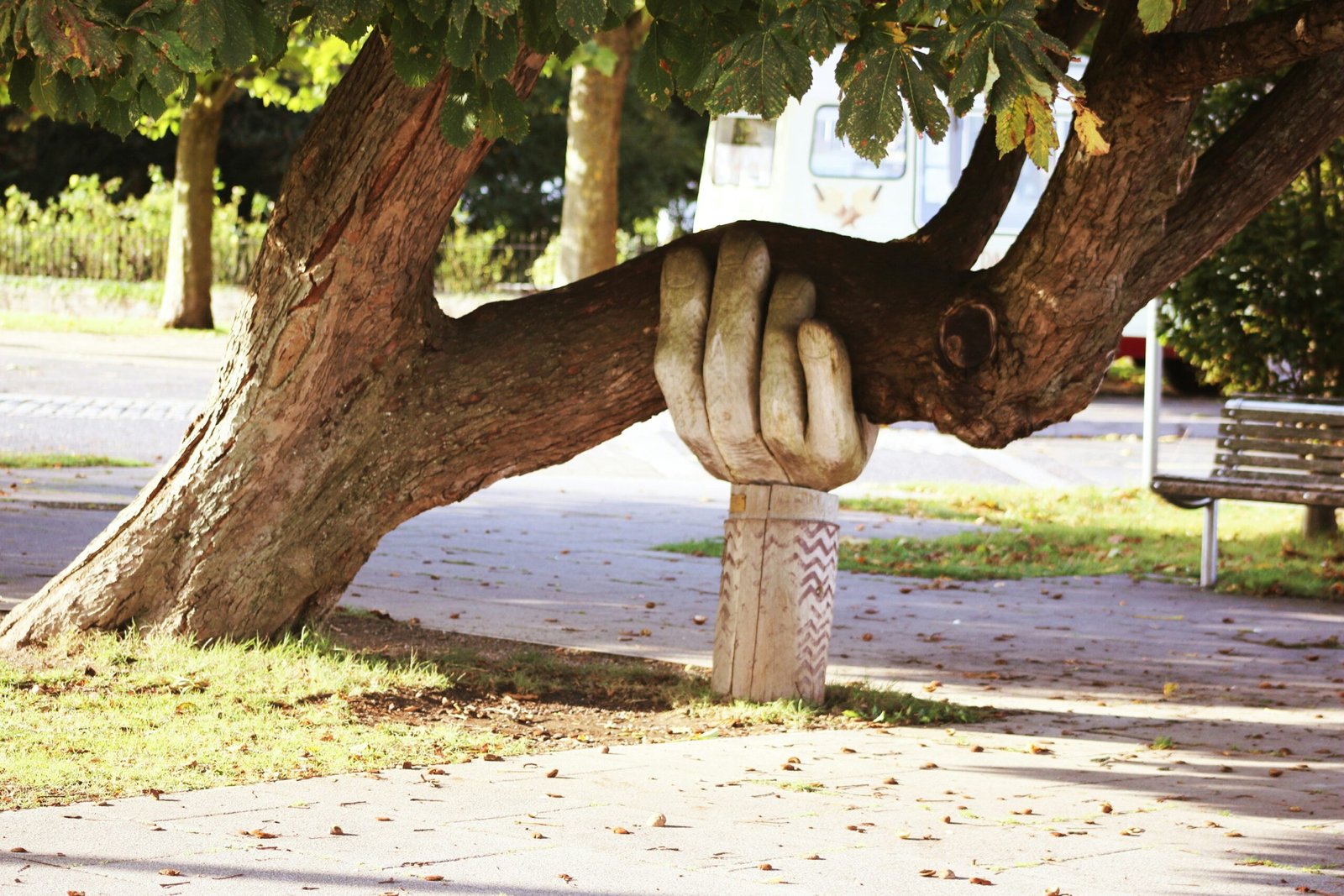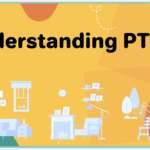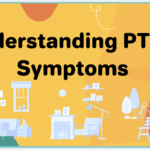Understanding PTSD and Its Impact on Veterans
Post-Traumatic Stress Disorder (PTSD) is a mental health condition that can develop after an individual experiences or witnesses a traumatic event. While PTSD is often associated with combat veterans, it can arise from various experiences, including accidents, assaults, or natural disasters. For military personnel, the transition from combat to civilian life can be particularly challenging, as they may encounter residual psychological stress from their experiences in war zones.
The symptoms of PTSD can manifest in several ways, including intrusive memories, flashbacks, and nightmares related to the traumatic event. Additionally, veterans may experience emotional numbness, hyperarousal, irritability, and heightened anxiety. These symptoms not only affect the individual’s mental state but can also impact their relationships with family and friends. Veterans often struggle to articulate their feelings or share their traumatic experiences with loved ones, which can lead to isolation and a sense of alienation.
The causes of PTSD in veterans are deeply rooted in their experiences during military service. Exposure to life-threatening situations, violent combat, and the loss of comrades can leave lasting emotional scars. Even after returning home, many veterans continue to grapple with the psychological burden of their service, which can hinder their ability to function in everyday life. This impact is compounded by additional stressors, such as reintegration into civilian society, employment challenges, and changes in family dynamics.
Long-term effects of PTSD can be debilitating, leading to chronic mental health issues, substance abuse, or suicidal ideation. It is crucial for families and communities to understand these challenges and provide the necessary support and resources. Awareness and empathy are vital in assisting veterans in managing their PTSD, fostering an environment where they can seek help without stigma and begin the healing process.
The Family’s Perspective: Witnessing the Struggle
Having a family member who is a veteran diagnosed with PTSD brings forth a unique set of challenges that are often difficult for outsiders to understand. The emotional toll on the family is profound, marked by feelings of helplessness and worry. Each day can be a precarious balancing act, as family members strive to provide support while also navigating their own emotional landscapes. The struggle is palpable; moments that were once filled with shared laughter can diminish into silence, punctuated by the unease of an unseen battlefield.
Anecdotes from family members often illustrate the stark realities they face. One mother recounts the anxiety she feels when her son returns home from a service appointment. The joy of seeing him is overshadowed by the fear of what he may reveal about his mental state. Conversations that once flowed easily are now often fraught with tension. Similarly, siblings might experience similar sentiments, watching as their brother or sister struggles to reconcile their combat experiences with everyday life. This transition, challenging for the veterans themselves, can be equally tough on those who love them.
Moreover, the burden of caregiving and support can weigh heavily on family members. They may feel isolated, both from the veteran’s experiences and from their social circles, finding it hard to articulate their frustrations and fears. As they attempt to practice patience and encourage their loved one, they wrestle with their own feelings of frustration and fatigue. Yet, the determination to persist in support remains strong. Families often become advocates, striving to educate themselves about PTSD, seeking out resources, and encouraging their loved ones to engage in therapies that promote healing.
This sense of unity, despite the ongoing battle with PTSD, is what helps families sustain hope. They demonstrate resilience, refusing to allow their circumstances to fracture their bonds. Supporting a veteran with PTSD requires emotional fortitude, compassion, and understanding—and it is this unwavering support that can make a significant difference in the lives of those affected.
Recognizing the Signs: How to Identify PTSD in a Loved One
Post-Traumatic Stress Disorder (PTSD) can manifest in various ways, making it crucial for family members and friends to recognize the signs early on. Understanding these indicators can significantly improve the support system for a loved one suffering from this condition. One common symptom is heightened anxiety, often exhibited through restlessness, irritability, or a sudden increase in emotional responses. Individuals may appear on edge, easily startled or overwhelmed by seemingly minor triggers.
Another prominent sign of PTSD is the tendency to avoid reminders of the trauma. This might include steering clear of certain places, people, or even activities that evoke distressing memories. As a result, the affected person may become withdrawn or less engaged with family and social networks, contributing to feelings of isolation and loneliness.
Intrusive thoughts, such as flashbacks or nightmares, can also signal the presence of PTSD. A loved one may exhibit signs of distress during discussions about their experiences or may appear distracted and disconnected from the present moment. Emotional numbness is another aspect to consider; the individual may struggle to express emotions, leading to an apparent lack of interest in previously enjoyed activities.
Physical symptoms should not be overlooked as well. Many individuals with PTSD experience chronic pain, fatigue, or gastrointestinal issues, which can complicate their emotional well-being. Observing changes in sleep patterns, such as insomnia or excessive sleeping, can be an additional red flag.
When approaching a loved one who displays these potential symptoms, it’s essential to maintain a compassionate and open demeanor. Encourage conversations when they feel comfortable, and let them know that support is available. By recognizing and understanding these signs of PTSD, families and friends can more effectively support their loved ones on the journey to recovery.
The Importance of Open Communication
Open communication is vital when supporting a loved one, particularly a veteran suffering from post-traumatic stress disorder (PTSD). This condition often leads to feelings of isolation and disconnection. Therefore, establishing a safe space where individuals can share their emotions without judgment is essential for their recovery. Families can play a significant role in creating this supportive environment by employing a few strategic approaches.
Firstly, it is crucial to encourage veterans to express their feelings. This could start with simple questions about their day or how they are feeling at that moment. Rather than pushing for details about their experiences, it is important to listen actively, as this demonstrates genuine care and concern. Using open-ended questions can foster deeper discussions and help veterans feel more comfortable sharing their thoughts.
Secondly, picking the right time and setting for these conversations can significantly impact their effectiveness. Choosing a quiet, private location where the veteran feels at ease can lead to more productive discussions. Additionally, families should be aware that there may be moments when the veteran is not ready to talk; recognizing this can prevent escalating tension and show an understanding of their emotional state.
Moreover, practicing patience is paramount. Conversations about feelings may not yield immediate results, and veterans might require time to open up fully. Providing reassurance that they can share their thoughts when they are ready can alleviate pressure. Non-verbal support, such as sitting close or maintaining eye contact, can also foster trust and openness.
In conclusion, supporting a veteran with PTSD requires a commitment to fostering open communication. By creating an environment where veterans feel heard and respected, families can significantly aid in their loved ones’ healing journey. The process might be gradual, but the role of open dialogue in enhancing understanding and emotional support cannot be overstated.
Seeking Professional Help: When and How to Get Support
For veterans struggling with PTSD, seeking professional help is a crucial step toward recovery. It is essential for both individuals and their families to understand when to seek assistance and the types of support available. Early intervention can significantly impact the effectiveness of treatment, helping to alleviate symptoms and improve overall well-being.
Professional help can take various forms, including individual therapy, group therapy, and family therapy. Each approach offers unique benefits that cater to different needs. Individual therapy provides a safe space for veterans to express their thoughts and feelings while working through their trauma with a trained therapist. On the other hand, group therapy facilitates connections with others who share similar experiences, fostering a sense of community and understanding. Family therapy can also be pivotal; it helps family members understand the challenges the veteran faces and improves communication within the household.
Navigating the healthcare system can be daunting, especially for those unfamiliar with the available resources. In the UK, veterans can access treatment through the National Health Service (NHS) and various charities dedicated to supporting former service members. The NHS offers a range of mental health services, including counseling and psychological therapies, specifically designed for PTSD. Additionally, organizations like the Veterans’ Gateway or Combat Stress provide vital information and assistance in locating suitable services.
For those who prefer private healthcare options, numerous accredited therapists specialize in treating PTSD. While navigating these services might incur costs, the benefits of timely, professional intervention can outweigh financial considerations. It is crucial to research and select the right therapeutic approach that aligns with the unique needs of the veteran and their family, ensuring the best possible support on their journey toward healing.
Creating a Supportive Home Environment
Establishing a supportive home environment is fundamental in aiding a UK veteran grappling with Post-Traumatic Stress Disorder (PTSD). The household should promote healing, comfort, and security. One of the first steps families can take is to create structured daily routines. Regular schedules help mitigate anxiety by providing a sense of predictability, allowing the veteran to navigate their day with more ease and confidence. Incorporating time for physical activity, rest, and mental stimulation will contribute positively to their overall well-being.
Promoting relaxation within the home can significantly influence a veteran’s recovery journey. Families can create calming spaces equipped with soft lighting, comfortable furniture, and soothing decor. Elements such as scented candles or essential oils and calming sounds, like nature recordings, can further enhance a tranquil atmosphere. Encouraging practices like meditation, yoga, or simply engaging in quiet hobbies can offer moments of respite from daily challenges.
Additionally, reducing stressors is crucial for creating a nurturing environment. Identify triggers that may escalate anxiety and work collaboratively to minimize these stressors. This may involve altering certain household activities, such as lowering noise levels during peak anxiety times or being mindful of stimulating visual clutter that could provoke discomfort. Open dialogue among family members about feelings and experiences can foster understanding and support, allowing everyone to adapt to the evolving needs within the household.
Ultimately, creating safe spaces within the home is integral to supporting a veteran with PTSD. Designate areas where they can retreat when feeling overwhelmed. This could be an organized relaxation nook or even their private bedroom. By recognizing the importance of privacy and personal space, families can ensure their loved one feels safe and respected in their healing journey.
Empowering the Veteran: Encouraging Independence and Coping Strategies
Empowering veterans dealing with post-traumatic stress disorder (PTSD) involves enabling them to take charge of their healing journey. This transition from dependence to independence can significantly enhance their overall well-being, encouraging a proactive stance toward recovery. One essential aspect of this empowerment is the incorporation of effective coping strategies into their daily routine.
Mindfulness practices are invaluable tools for managing the symptoms of PTSD. Techniques such as meditation, deep breathing exercises, and guided imagery can help the veteran develop greater self-awareness and emotional regulation. Families play a critical role by creating a supportive environment that fosters these practices. Encouraging veterans to set aside time for mindfulness can facilitate a sense of control and peace in chaotic moments, ultimately contributing to their healing journey.
Regular physical exercise has also proven to be an effective coping strategy for veterans. Engaging in activities such as walking, yoga, or team sports not only promotes physical health but also releases endorphins that enhance mood and reduce anxiety. Families can encourage participation in these activities by suggesting local groups or joining together in exercise sessions. By reinforcing the habit of physical activity, families can help veterans build resilience, leading to improved mental health.
In addition, self-help techniques, including journaling, art therapy, or engaging with nature, can provide emotional outlets that foster healing. Encouraging veterans to express themselves creatively can help articulate feelings that may be too challenging to communicate verbally. Families should recognize and honor these diverse forms of expression, offering encouragement and support.
Creating a framework of encouragement is essential for veterans to explore and adopt coping strategies that resonate with them. This not only helps them take ownership of their healing process but also fortifies their ability to navigate the challenges posed by PTSD. Cultivating independence enables veterans to harness their strengths while fostering resilience and improving their quality of life.
Sharing the Load: The Importance of Community and Peer Support
Supporting a UK veteran with post-traumatic stress disorder (PTSD) can be a daunting task, not just for the veterans themselves but also for their families. Throughout this journey, one of the most crucial elements is the importance of community and peer support. Engaging with local organisations and support networks can provide an invaluable resource, fostering a sense of understanding, camaraderie, and shared experiences that can significantly alleviate the burden felt by families.
Peer support groups, for instance, offer a unique environment where veterans can connect with others who have faced similar challenges. These groups create a safe space for sharing experiences, leading to the formation of strong bonds and mutual understanding. Listening to others narrate their journeys can provide insights and coping mechanisms that might be beneficial to an individual’s healing process. Moreover, family members often find solace and encouragement by speaking with others in similar situations, alleviating feelings of isolation and providing emotional respite.
Veteran organisations also play an essential role in offering resources tailored to the unique needs of veterans and their families. Programs dedicated to providing psychological support, counselling, and workshops can equip families with the necessary tools to aid their loved ones. Collaborative initiatives often include therapy sessions that focus on communication, resilience, and stress management, providing targets for personal growth and understanding within the familial unit.
Additionally, local initiatives may offer recreational activities, community events, and holistic therapies. These programs encourage veterans and family members to engage positively with others, fostering a sense of connection and belonging. It also aids in normalizing the experience of living with PTSD, emphasising that families are not alone on this journey. By actively participating in community efforts, both veterans and their families can find meaningful support that extends beyond traditional therapeutic measures.
Conclusion: A Journey of Resilience and Hope
Throughout the journey of supporting a UK veteran with PTSD, we have highlighted the importance of resilience, understanding, and proactive measures in navigating the complexities associated with this mental health condition. PTSD can profoundly impact both the individual and their family, presenting unique challenges that require patience, empathy, and a collaborative approach towards healing.
Equipping oneself with knowledge is a crucial step in this process. Families should educate themselves about the nature of PTSD and its symptoms, recognizing that each person’s experience may differ. This understanding not only fosters compassion but also prepares families for the emotional hurdles they may faced during recovery. Encouraging open communication remains vital; creating a safe space for discussions can bolster the sense of security that the veteran requires in their healing journey.
Moreover, reaching out for support from professionals and veteran organizations can provide additional resources that may enhance recovery efforts. These entities offer guidance, therapeutic interventions, and community engagement activities, which can significantly contribute to the veteran’s road to resilience. It is essential to remember that seeking help is a sign of strength, not weakness.
The journey is undoubtedly difficult, often requiring families to weather the storm of emotional ups and downs. However, it is also a journey filled with moments of profound connection and reaffirmation of love. While the healing process may be long and complex, families should remain steadfast in their support, fostering an environment where hope can flourish. Ultimately, the continuity of love and understanding serves as the bedrock for overcoming the obstacles that PTSD presents, guiding both veterans and their families toward a future filled with hope.






